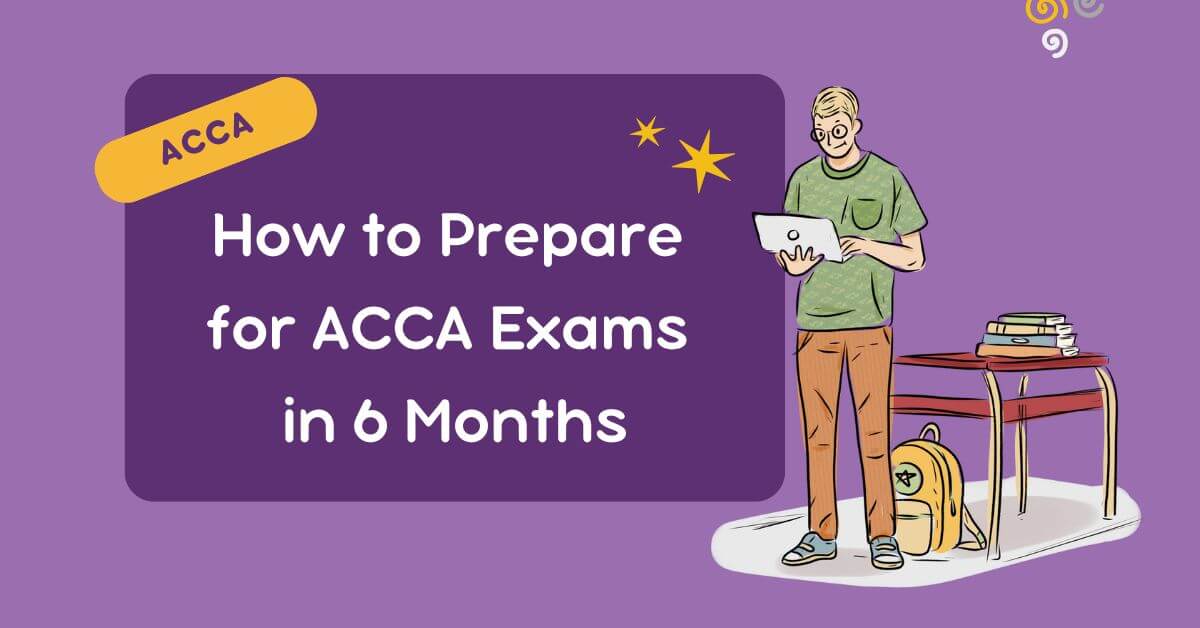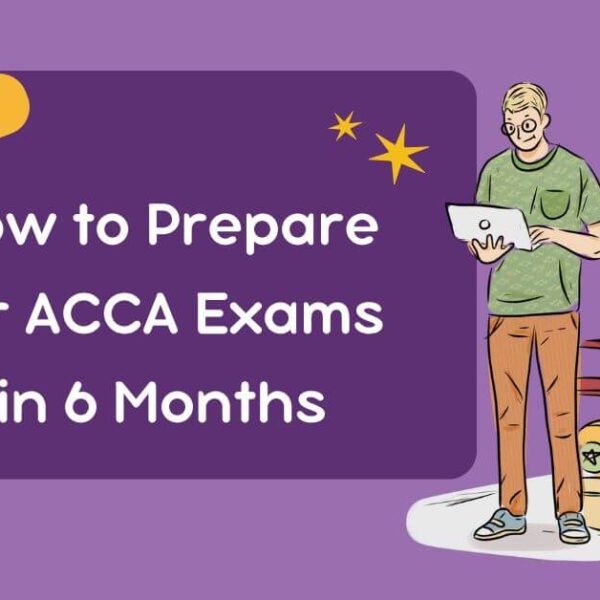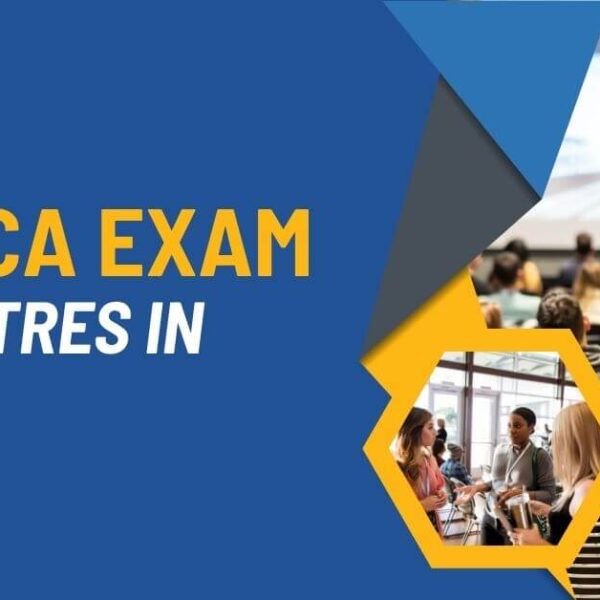Preparing for ACCA exams in six months requires strategic planning, disciplined execution, and efficient study methods. Whether taking your first ACCA paper or approaching the Strategic Professional level, this comprehensive guide provides a proven framework for success within a focused timeframe.
Understanding the 6-Month Challenge
Six months provides adequate time for thorough ACCA exam preparation when approached systematically, allowing comprehensive syllabus coverage, intensive practice with extensive question practice and mock exams, revision cycles with multiple review phases for retention, confidence building through gradual development of exam confidence, and contingency time providing buffers for unexpected challenges or weak areas.
Success requirements include consistent daily effort with a minimum of 2-3 hours of study per day, strategic planning through systematic approaches to content coverage, access to quality resources and comprehensive study materials, regular assessment through ongoing progress monitoring and adjustment, and strong motivation with sustained commitment throughout the period.
Month-by-Month Strategic Plan
Month 1: Foundation Building
Week 1: Setup and Planning establishes the foundations for successful preparation through learning assessments, evaluating current knowledge levels via diagnostic tests, organising resources, gathering study materials and online access, creating a study schedule, developing detailed weekly and daily plans, and setting up an environment that eliminates distractions.
Study structure for 20-25 hours weekly includes syllabus overview with 3-4 hours comprehensive syllabus review, basic concepts with 8-10 hours fundamental topic introduction, practice questions with 4-5 hours easy-level question practice, planning time with 2-3 hours schedule refinement and goal setting, and administrative tasks with 2-3 hours registration and materials organisation.
Weeks 2-4: Core Concept Development builds solid understanding of fundamental concepts through daily structures of 3-4 hours including morning sessions (1.5-2 hours) for new topic learning through video lectures or reading, afternoon sessions (1 hour) for practice questions on recently discovered material, and evening sessions (30-60 minutes) for review and consolidation of daily learning.
Weekly milestones include completing 25% of the syllabus with a basic understanding by Week 2, 50% of the syllabus with foundational knowledge by Week 3, and 75% of the syllabus with a conceptual grasp by Week 4.
Month 2: Knowledge Deepening
A primary focus on advanced understanding develops comprehensive knowledge across all syllabus areas through mastery of topics, with in-depth exploration of the complex regions that require a deeper understanding. This includes integration practice, connecting different topics and identifying relationships, as well as an application focus that emphasises the practical application of theoretical concepts. Additionally, it involves identifying weaknesses and recognising and prioritising challenging areas.
The weekly structure, which includes 25-30 hours of advanced learning, consists of 12-15 hours of studying complex topics, 8-10 hours of practice enhancement with intermediate-level questions, 3-4 hours of focused improvement on weak areas, and 2-3 hours of integration work connecting concepts across topics.
ACCA online courses can be utilised effectively during this phase through live sessions, attending interactive webinars for complex topics, replaying recorded lectures, reviewing difficult concepts multiple times, seeking tutor support, engaging with instructors for clarification, and tracking progress through platform analytics.
Month 3: Practice Intensive
Primary focus on question mastery develops strong exam technique and time management through study distribution, including question practice with 60% of study time on various question types, theory review with 25% reinforcing theoretical understanding, mock exams with 10% on full-length practice tests, and analysis with 5% reviewing mistakes and weak areas.
Weekly practice goals include: Week 9, focusing on accuracy over speed with 50+ questions daily; Week 10, with 60+ questions daily and beginning timing practice; Week 11, with 70+ questions daily and simulating exam conditions; and Week 12, with the first full mock exam plus targeted practice.
Question types vary by paper level with Applied Knowledge focusing on objective tests including multiple choice and time management practicing completion within 2-hour timeframes, Applied Skills emphasising constructed response questions mastering 2-10 mark questions and long questions practicing 15-25 mark detailed answers, and Strategic Professional developing case study analysis with systematic approaches to complex scenarios and integration skills connecting knowledge across syllabus areas.
Month 4: Exam Technique Refinement
The primary focus on speed and accuracy enhances exam performance under timed conditions through key development areas, including time allocation, mastering optimal time distribution across questions, answer technique, developing efficient answer structures and formats, stress management, building confidence for exam day performance, and eliminating weak areas with final intensive work on remaining gaps.
The daily structure consists of 4-5 hours, including timed practice under strict exam conditions (2-3 hours), speed building with 1 hour of rapid-fire question practice, review and analysis of mistakes and improvements (1 hour), and a 30-minute quick concept review for theory refresh.
Mock exam schedules include Week 13, featuring two mock exams and a comprehensive analysis; Week 14, which includes two mock exams focusing on time management; Week 15, comprising two mock exams simulating actual exam conditions; and Week 16, concluding with one final mock exam, along with confidence-building exercises.
Month 5: Intensive Revision
A primary focus on consolidation and retention ensures complete knowledge retention and readiness through revision strategies, including systematic review with comprehensive syllabus coverage, active recall testing to reinforce knowledge without referring to materials, spaced repetition with regular review of previously studied material, and reinforcement of weak areas with continued focus on challenging topics.
Week-by-week breakdown includes Week 17 first complete revision cycle reviewing syllabus thirds over days 1-6 with full mock exam and analysis on day 7, Week 18 second complete revision cycle focusing on weak areas from Week 17 with integration practice and two mock exams, Week 19 final revision and confidence building with speed revision and final mock exams under strict conditions, and Week 20 pre-exam preparation with light review, formula memorisation, final weak area practice, and rest with mental preparation.
Month 6: Final Preparation and Exam
Primary focus on peak performance readiness maintains peak condition for optimal exam performance through final preparation strategies including knowledge maintenance with light review keeping concepts fresh, confidence building, focusing on positive reinforcement and success visualization, physical preparation ensuring proper rest, nutrition, and stress management, and practical arrangements confirming all exam logistics and requirements.
Week 21-22 final polish includes formula mastery, memorising essential formulas and ratios, creating concise summary notes for last-minute review, practising maintenance with limited question practice, maintaining sharpness, and stress management, as well as implementing relaxation and confidence techniques.
Week 23 pre-exam preparation involves a light review, accompanied by 1-2 hours of daily review of summary notes. Additionally, it includes physical preparation to ensure adequate sleep and proper nutrition, logistics confirmation to verify exam locations, timing, and required materials, and mental preparation through visualisation and positive thinking exercises.
Week 24 exam week includes a final review with a brief review of key formulas and concepts. The rest is prioritised to ensure adequate sleep before exam day. Exam day execution requires confidence and composure. Post-exam recovery and reflection on performance are also important.
Subject-Specific Strategies
Applied Knowledge Level
Business and Technology requires a 6-month approach, including months 1-2 for business environment fundamentals and organisational behaviour, months 3-4 for IT systems, e-business, and project management, and months 5-6 for ethics, governance, and a comprehensive review.
Key success factors include staying updated with current affairs, business news, and case studies that examine real business examples, mastering multiple-choice techniques, and developing speed through practising 70 questions in 2 hours.
Management Accounting requires focused preparation through calculation mastery, extensive practice with costing methods, formula memorisation, learning key formulas and ratios, speed building, developing rapid calculation abilities, understanding application, and knowing when to apply different techniques.
Financial Accounting requires systematic approaches through double-entry bookkeeping, mastering basic bookkeeping principles, knowledge of standards and key accounting principles, and the complete preparation of financial statements. It also involves mastering year-end adjustments and corrections.
Applied Skills Level
Performance Management requires advanced techniques, including variance analysis, mastery of all calculation types, understanding of performance measures, financial and non-financial indicators, strategic integration that connects performance management to strategy, and informed decision-making, as well as practice in making investment and operational decisions.
Financial Reporting requires standards expertise, including knowledge of IFRS, mastery of International Financial Reporting Standards, experience with group accounts and consolidated financial statements, handling of complex transactions and specialised accounting treatments, and analysis skills for interpreting and analysing financial statements.
Strategic Professional Level
Strategic Business Leader: Needs integrated approaches through case study skills, developing systematic case analysis methodology, strategic thinking, practising strategic analysis and recommendation, professional skills focusing on communication and presentation, and integration connecting all previous ACCA knowledge areas.
Technology and Resource Utilisation
Maximise digital platforms through interactive content, engaging with multimedia learning materials, and systematically tracking progress, monitoring completion, and assessing performance. Utilise mobile learning by studying on smartphones and tablets during commutes, and access content offline by downloading it for study without an internet connection.
Digital study tools include note-taking apps, organising study notes digitally, calendar integration, syncing study schedules with personal calendars, practice apps using mobile apps for quick question practice, and cloud storage, backing up and accessing study materials anywhere.
Success Measurement and Adjustment
Monitor progress through weekly assessments, including knowledge testing with concept quizzes, practice questions with increasing difficulty levels, mock exam performance with systematic improvement tracking, and time management with consistent timing improvement.
Adjustment indicators requiring schedule and strategy modification include below-target performance, consistent weak areas that need additional focus and resources, time management issues that necessitate technique refinement, and a decline in motivation that requires reassessment of goals and approaches.
Conclusion
Preparing for ACCA exams in six months is challenging yet achievable with a proper strategy, adequate resources, and a strong commitment to study. Success depends on systematic planning, consistent execution, and continuous adaptation to maintain optimal progress.
Key success factors include strategic planning with detailed month-by-month preparation roadmaps, quality resources with access to comprehensive materials and ACCA preparation courses, consistent effort through daily study routines with appropriate intensity, regular assessment with ongoing progress monitoring and strategy adjustment, and professional support utilising tutors, platforms, and study communities.
Whether studying through comprehensive online platforms or other quality providers, this framework provides proven pathways to ACCA success. The combination of structured learning, intensive practice, and strategic exam preparation positions you for confident exam performance.
Six months of focused preparation can significantly enhance career prospects through achieving the ACCA qualification. Start implementing this plan today, maintain consistent effort throughout the journey, and approach exams with confidence in thorough preparation.








